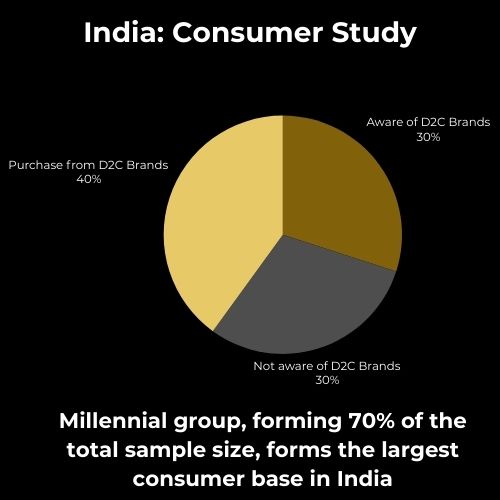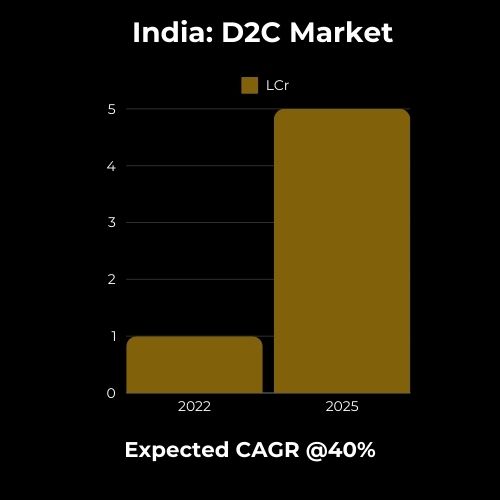D2C Brands: The Bold Move Towards Offline Expansion
The landscape of Direct-to-Consumer (D2C) brands is evolving rapidly. Traditionally known for their strong online presence and direct interactions with customers, D2C brands are now aggressively expanding into the offline market. This shift is not merely a trend but a strategic move aimed at capturing a broader audience and enhancing brand credibility. However, transitioning from an online-only model to an omnichannel presence presents unique challenges and opportunities.

The Drive for Offline Expansion
Newer D2C brands are particularly bullish on offline expansion, launching new stores at an accelerated pace. This move is driven by the need to reach a wider audience who may prefer the tactile experience of in-person shopping. For instance, Snitch, a prominent D2C brand, raised ₹110 crore last year to fuel its offline expansion. This substantial investment underscores the importance these brands place on establishing a physical presence.
The Omnichannel Approach: A Response to Market Dynamics
The rise of D2C brands has significantly impacted traditional offline retailers, pushing them to adopt an omnichannel approach. By integrating online and offline channels, retailers aim to create a seamless customer journey. This involves robust inventory management systems, a unified customer service approach, and consistent brand messaging across all touchpoints. Such integration is crucial for maintaining a competitive edge in the market.
Challenges of Offline Expansion
While the prospects of offline expansion are promising, it is fraught with challenges. Unlike the digital space, where overhead costs are relatively low, offline expansion requires significant capital investment. Brands must staff stores, drive in-store traffic, and ensure their offerings are compelling enough for customers to make a purchase. If the physical stores fail to generate sufficient revenue, the financial repercussions can be severe.
Strategic Approaches to Offline Success
To mitigate risks, D2C brands employ several strategic approaches. Identifying hero products based on online sales data and customer feedback helps in determining which products to showcase in physical stores. This strategy ensures maximum marketing efficiency and scales up growth.
For some brands, the primary motive for entering the offline space is to foster trust with their consumer base. Post-pandemic trends have shown that consumers prefer an omnichannel experience to truly trust a brand. Wakefits.co, for example, uses a hub-and-spoke model to manage inventory efficiently and employs predictive models to forecast demand and plan supply.
The Synergy of Online and Offline Channels
The synergy between online and offline channels offers significant benefits. Offline stores amplify a D2C brand’s online sales and marketing strategies. They also provide invaluable data collection opportunities, allowing brands to gather customer insights such as preferences, purchase patterns, and feedback. Integrating this data enables personalized marketing campaigns and tailored in-store experiences, enhancing overall customer satisfaction and loyalty.
Brands can leverage geo-targeted online ads to drive foot traffic to their stores, while in-store promotions encourage customers to engage with the online platform. Additionally, content strategies can include showcasing in-store events, customer testimonials, and exclusive in-store collections on digital channels.
The Evolving Distribution Landscape
With the expansion of the distribution footprint, the marketing mix for D2C players has also evolved. An integrated marketing mix is essential for reaching the target audience via different media touchpoints with high frequency and consistent brand communication. This approach drives awareness, actionability, and recall, ensuring a robust omnichannel presence.
Conclusion: The Role of Strategic Partners

As the market value of D2C brands in India is projected to grow from approximately ₹1 Lcr in 2022 to surpass ₹5 Lcr by 2027, growing at a CAGR of 40%, it is evident that the future is bright for these brands. However, navigating this complex landscape requires the right partners and D2C experts. Firms like Encompass Ideas play a crucial role in helping brands establish credibility and social proofing in the market. By leveraging their expertise and connections, D2C brands can effectively navigate the marketing landscape, ensuring credible growth and value.
The journey from online success to offline expansion is challenging but rewarding. With the right strategies and partners, D2C brands can achieve a seamless omnichannel presence, fostering trust and loyalty among their customers.
